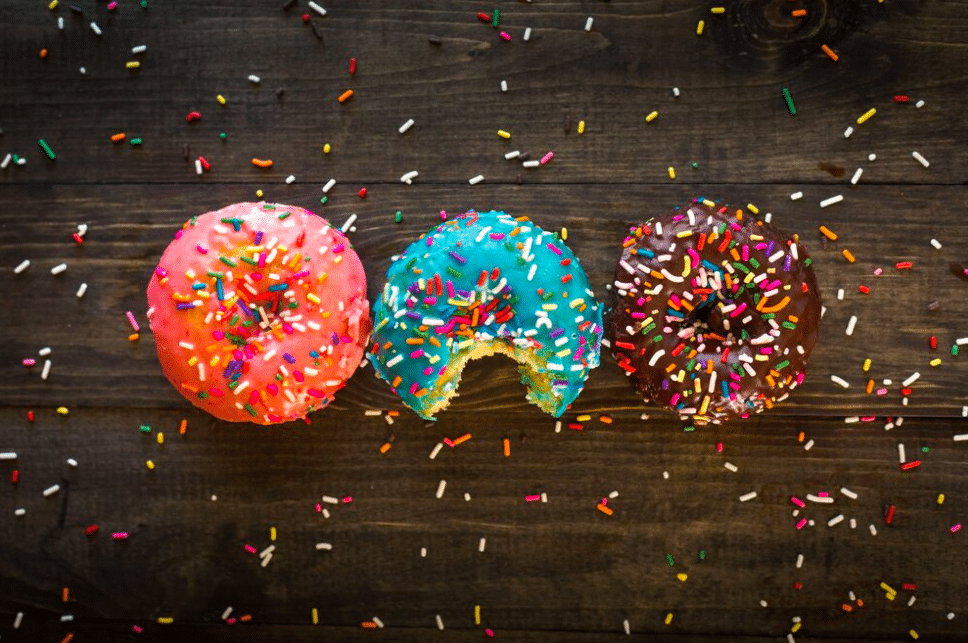How your daily sugar intake has a harmful effect on your skin

Learn about the side effects of sugar on your skin and be mindful of your daily sugar intake
Article on The Soothe: https://www.thesoothe.co/body/beauty/your-daily-sugar-intake-has-a-harmful-effect-on-your-skin
Wonton Mee. Bubble tea. Char Siew Rice. Kopi with milk. There are many delicious foods and drinks to enjoy in Singapore, but most come with a hefty dose of sugar. And while the sweet stuff tastes great, don’t underestimate your daily sugar intake and the sugar effects on body, skin and your physical wellbeing. If your usually glowy skin is showing signs of hyperpigmentation, discolouration, fine lines, crevices around your laughter line area, and you’re seeing suggestions of a saggy jowl, you could be suffering from the harmful side effects of sugar.
“When you eat a lot of sugar, it goes directly to your gut, gets processed, then enters your bloodstream, which can lead to a rise in insulin levels rise and inflammation in the body,” explains Dr Kevin Chua of Dr Kevin Chua Medical & Aesthetics. “It can also impact other skin conditions such as rosacea, eczema, and psoriasis.”
And if it’s ageing skin you’re worried about, your daily sugar intake may well be a contributing factor. “Skin models have shown that sugar molecules can attach to skin cells which is a process called glycation,” continues Dr Chua. “High blood sugar contributes to the ageing process,” continues Dr Chua. “The recovery process of our skin, including collagen fibres (the fibres that maintain strength, skin elasticity and youthfulness) from environmental assailants like pollution, blue light and UV rays is hampered and slowed down because of this glycation process.”

Daily sugar intake creeps up
According to the British Journal of Dermatology, the visible effects of glycation tend to emerge for women around the age of 35. Of course, as a bid to stop the harmful side effects of sugar it pays to look at your diet at any age, especially as one teaspoon (or five grams) of sugar is equivalent to 20 calories so consumption can quickly creep up. Indeed, a recent National Nutrition Survey revealed that the total daily sugar intake of an average Singaporean was 60 grams — the equivalent of 12 teaspoons of sugar (which makes women 50% and men 33% over the limit according to the American Heart Association).
“It’s wise to be sensible about your choice of food,” says Dr Chua, who warns that beside the obvious sweets and candy, pay particular attention to fruit juices. “A glass of freshly squeezed orange juice may contain the entire sugar content of four oranges — a lot of sugar! Packet fruit juices are another big culprit that increases your daily sugar intake. You get a lot of sugar in bottled coffee and tea drinks too.”
He also says that milk products can be problematic. “I often treat patients who have bad acne breakouts after starting on whey protein supplements. These can increase sebum secretions and acne flare ups.”
Healthier choices, happier and glowy skin
While we need our daily sugar intake for energy, a healthier source can be found in foods like wholegrains and whole fresh proteins which keep blood glucose levels balanced. “The best way to remove sugar from your diet is to make a conscious decision and start with drinks,” says Dr Chua, who adds that “fasting occasionally also has anti-ageing effects.”
Small swaps can make a big difference to decrease your daily sugar intake. Instead of adding table sugar to dishes, use spices such as cinnamon or nutmeg. Rather than having a fruit yoghurt, mash fruits into a plain yoghurt. Read The Soothe feature on making healthier choices at the hawker centre. Opt for more plant-based meals. Check ingredients for anything ending with “ose” such as glucose, sucrose, fructose, lactose and maltose as these include forms of sugar such as honey, agave, molasses and syrups. As for your must-have coffee, choose kopi-o (black coffee) or kopi-o kosong (black coffee without sugar).
Visit The Soothe for the full post.


